Controlling their salaries, shrouding family investments and taking accounts of domestic stipend—economic abuse of women is a whispered terror

Some forms of economic abuse set the stage for dowry harassment years into the marriage. Pic/Getty Images
Twenty-one days. Married at 25 to someone who she had been in love with for over seven years, a Delhi NCR-based woman was compelled to end the relationship three weeks after they tied the knot. Intrusions into and speculation about her savings and the wedding gifts received from her family began on the wedding day. At first, the groom’s sister barged into their room, inquiring about a gold chain gifted to him by his mother-in-law, and went on to make disparaging remarks about it.
Only a few days later, another sister scrutinised the money gifted—amounting to Rs 75,000—offering unsolicited advice about how the couple should open a joint bank account, and arbitrarily taking possession of the sum with the promise to “handle it”. In the coming days, as her in-laws fixated upon her LIC policies and fixed deposits—put together over her five-year career—the Delhi woman decided enough was enough. Her divorce came through two years later. Prioritising her mental health after endless and uncomfortable talk about money, she opted for no alimony.
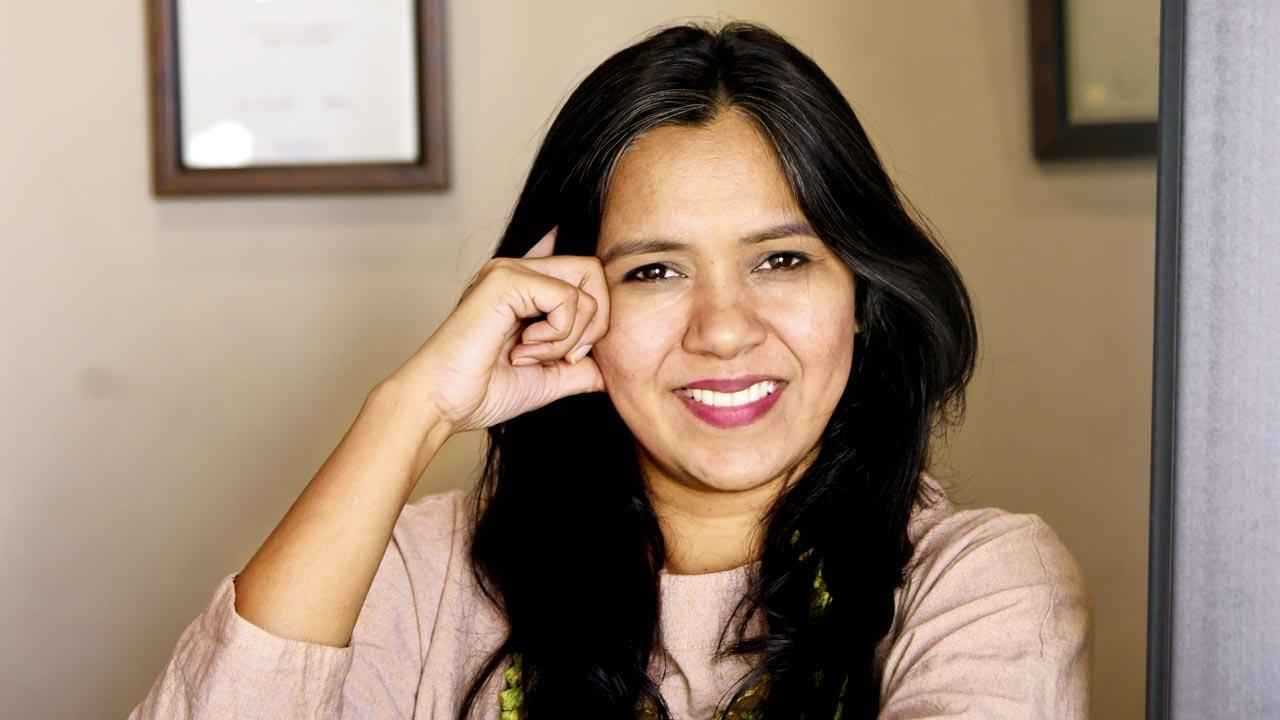 Few women are taught that their relationship with money can be healthy, says counsellor Megha Mawandia. Pic/Atul Kamble
Few women are taught that their relationship with money can be healthy, says counsellor Megha Mawandia. Pic/Atul Kamble
Unsurprisingly, her ex-husband’s family never returned the jewellery or gifts. “The moment you see red flags, walking away is important,” the woman tells mid-day 13 years later. “Society puts a lot of pressure on women to stick around and compromise, but life can be better once you move away from toxicity.”
Though legally recognised as a form of domestic violence since 2005, economic abuse is a lesser-known, insidious issue of power and control within the family, where a woman’s ability to sustain herself and her economic security is threatened. It can manifest in a number of all too familiar, and dangerous, ways: Inability to access property, depletion of earnings and savings, loans in the woman’s name, and disrupting her ability to work and have a job. The abuse crosses social boundaries of caste, class and religion.
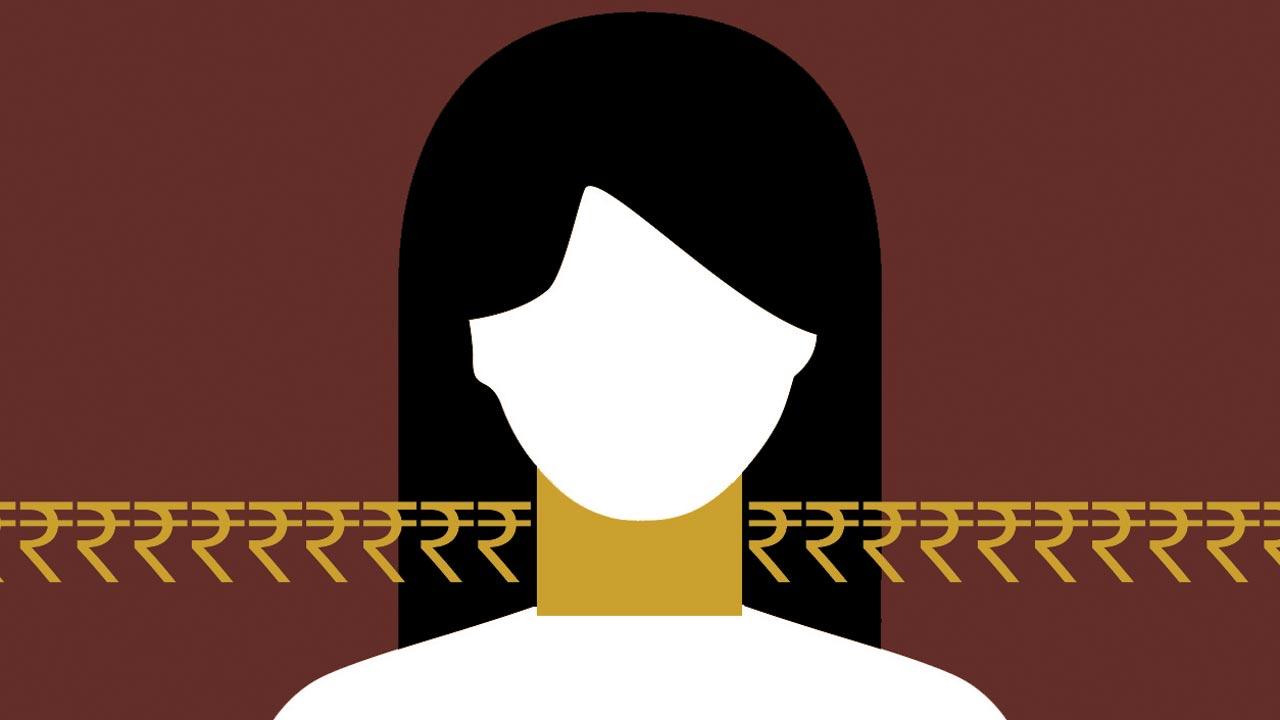
Through conversations with women who have faced it, researchers who have studied it, as well as lawyers and mental health experts, mid-day paints a picture of this silent storm and the ways in which it curtails survivors’ lives and freedoms.
When she first got married in 2016, this Bengaluru-based personal chef never imagined that she would have to maintain an Excel sheet of the limited ways in which she would spend the paltry monthly budget her ex-husband gave her. While she maintained a record of every penny spent on rent, grocery bills, utility bills, and their dogs, she would find him splurging on himself. Then again, she never imagined that he would abandon her for a few hours without her passport or any money on their honeymoon abroad.
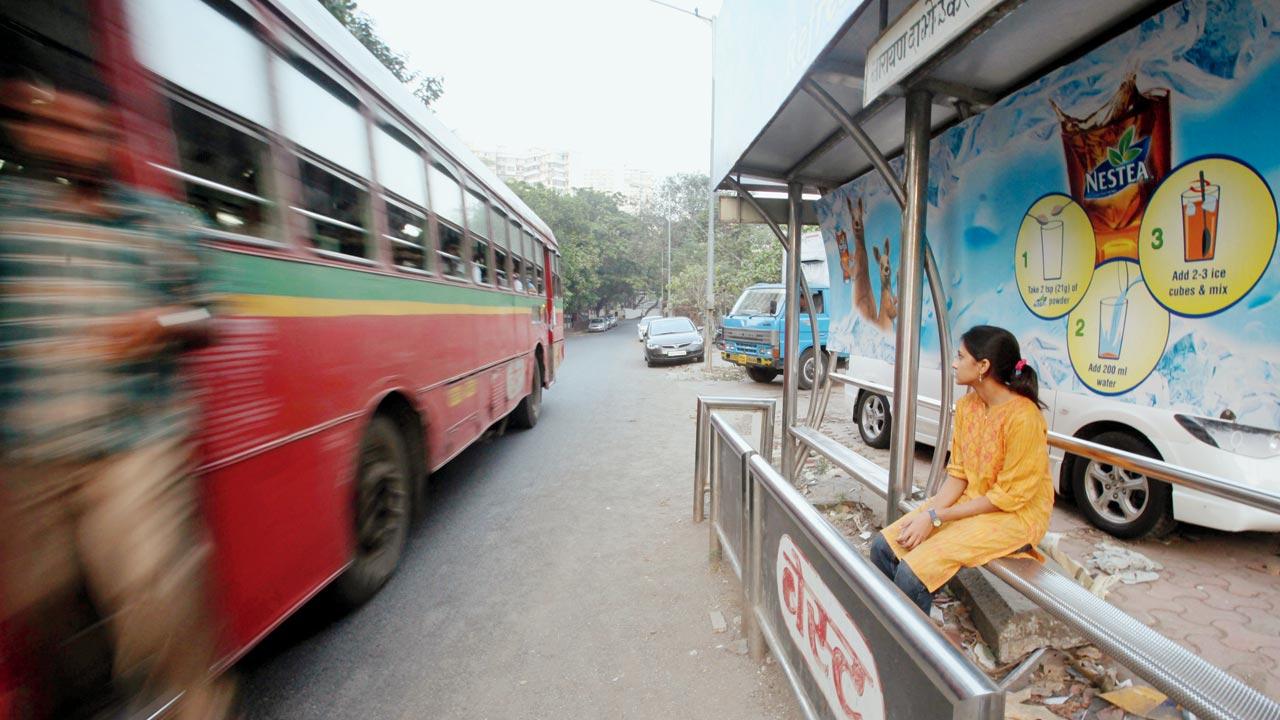 For those who are more educated than their husbands or earn more, career progression is a double-edged sword. Pic/Getty Images
For those who are more educated than their husbands or earn more, career progression is a double-edged sword. Pic/Getty Images
When she first asked what his salary as a marine engineer was, he refused to answer—citing that it wasn’t “her business”. She quit her job so they could relocate, but her career never quite took off while they remained married. Not only was she discouraged from taking up a full-time job or freelance work, she was chided for using the home budget to buy herself things. “I would feel guilty for wanting or needing something, and let it go. Sometimes, I would ask my parents to lend me money. That would anger him, because he thought it would affect my parents’ impression of him,” she says.
During her most difficult moments in the marriage and divorce, the personal chef found her parents unwilling to provide support. Punita Chowbey, who has doggedly documented economic abuse in Gujarat and Bihar, says that support for economic abuse can be a challenge because it is often subtle and hidden. “I’ve found that women can get understanding and sympathy from their relatives more easily for physical violence than economic abuse. The nature of economic abuse is such that it is hidden,” says the senior research fellow at the UK’s Sheffield Hallam University.
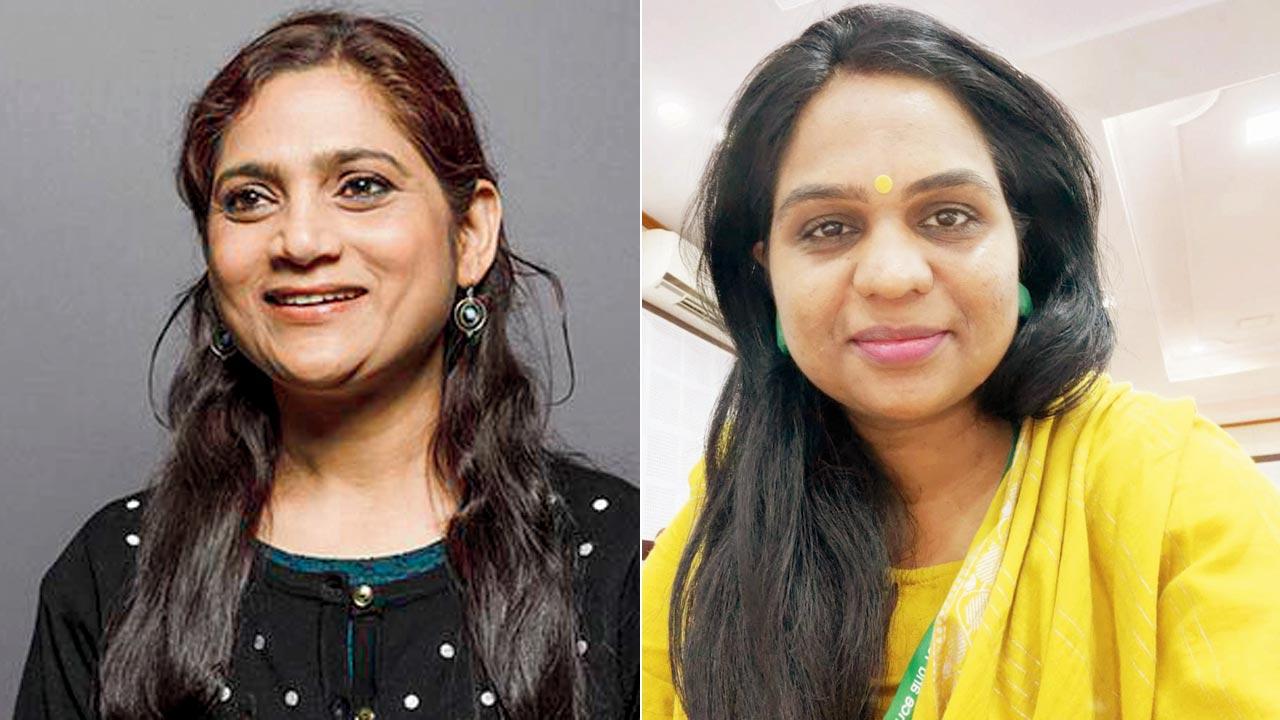 Punita Chowbey, Senior Research Fellow, Sheffield Hallam University; (right) Suman Kanougiya
Punita Chowbey, Senior Research Fellow, Sheffield Hallam University; (right) Suman Kanougiya
Chowbey screened a film titled SPENT about her recent research in Patna this past week. It brought to light the ways in which the COVID-19 pandemic exacerbated economic abuse against Indian women, a reality that has continued in the post-pandemic world. “All the support systems were taken away—women couldn’t see their parents or friends. They also couldn’t access formal support like the police or community organisations. There was more control over phones, and male relatives had more time to scrutinise what their female relatives were doing,” she explains. Alongside these changes, women’s employment was also affected, as well as the increasing burden of care work, such as cooking and looking after children and ageing relatives.
Closer home, Wadala and Kurla were put under the microscope by a group of researchers. The resultant article, published in May 2021 in the peer-reviewed journal BMC Public Health, brought forth vital findings about the correlation between alcohol and drug abuse and economic abuse.
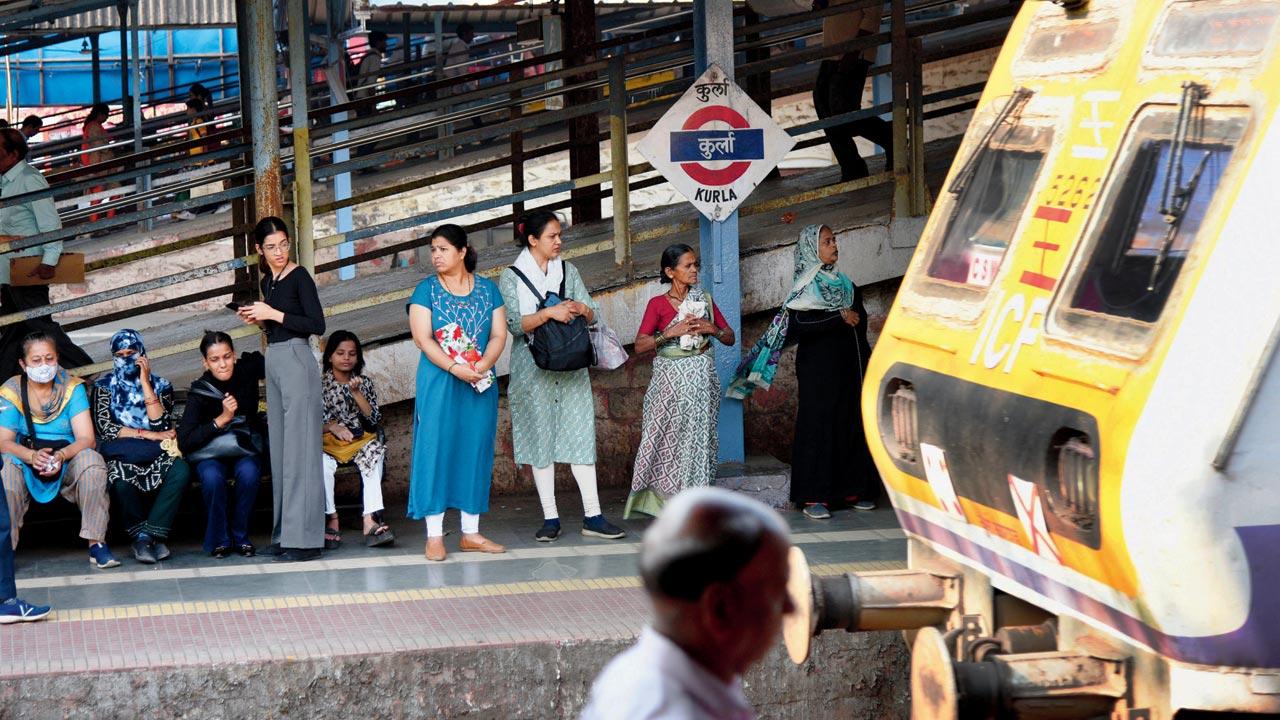 A Kurla-Wadala focused study traced links between substance abuse and economic abuse. Pic/Satej Shinde
A Kurla-Wadala focused study traced links between substance abuse and economic abuse. Pic/Satej Shinde
Some findings in the cross-sectional study, which assessed the associations of this form of abuse with the symptoms of mental disorders, underline lesser-known nuances. “Economic abuse was more commonly reported by widowed, separated, or divorced women,” write Suman Kanougiya, Dr Nayreen Daruwalla and peers. “The women may have exited the marital relationship because they were subjected to economic violence. Or it could be that as women who are divorced or widowed—identities that are stigmatised—they are deprived of property or support they should receive,” Kanougiya explains.
The journal article gives us a look into the experiences of women residing in informal settlements such as slums and chawls, but economic abuse is a reality across social classes. Chowbey’s qualitative studies from Gujarat and Bihar had representation from different occupational categories: Professionally employed high earners, who could be main or sole breadwinners; those who are informally employed, such as security guards and salon employees; self-employed, daily wage earners, and homemakers. “One of the respondents is a professional whose husband impersonated her to sabotage her employment… Economic abuse was reported by women from across different income levels,” she explains.
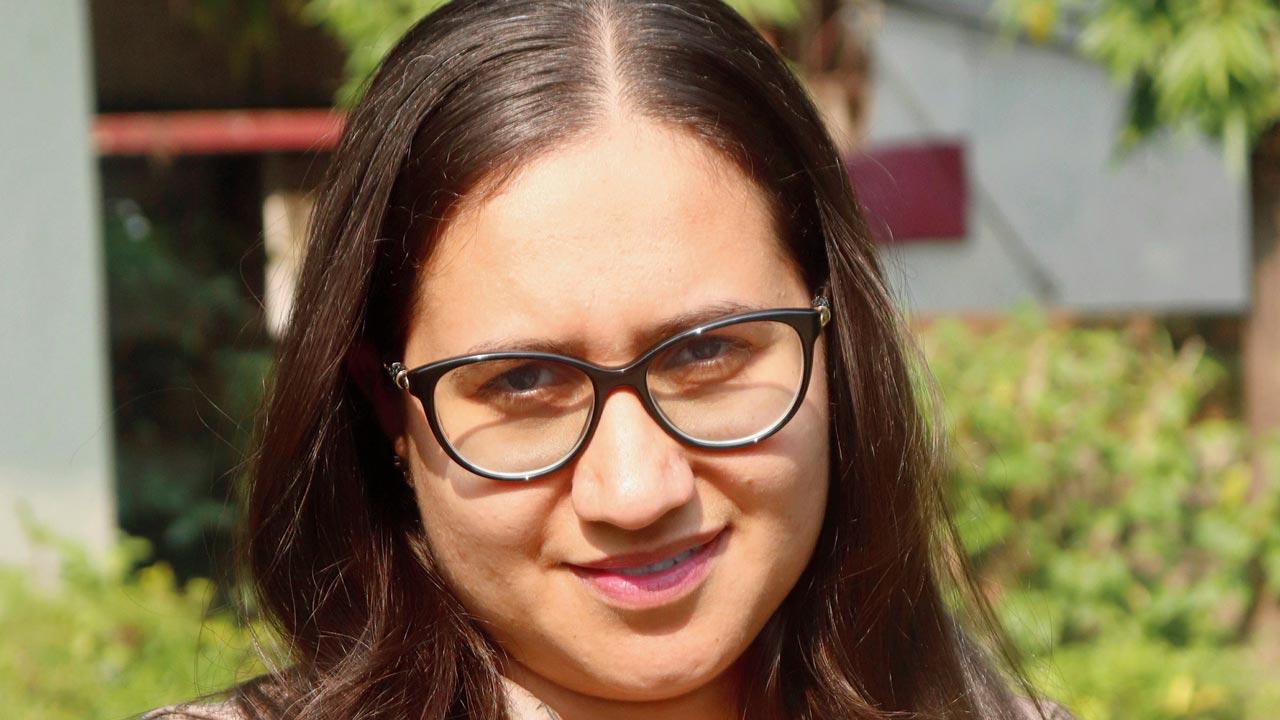 In cases of economic abuse, taking the legal route can be a long drawn out process, says Persis Sidhva, advocate and Director, Rati Foundation. Pic/Anurag Ahire
In cases of economic abuse, taking the legal route can be a long drawn out process, says Persis Sidhva, advocate and Director, Rati Foundation. Pic/Anurag Ahire
When a social media executive tried to move out of her family home in Mumbai to a rented apartment, she found that her bank accounts were emptied out—a crackdown to prevent her from taking a step towards eventual freedom. There’s a stoicism in her voice as she recounts this episode from three years ago. In her family, many daughters-in-law are prevented from taking up jobs or investing. In fact, until a few years ago, she and her female relatives had to seek out their brothers, fathers and uncles each time they made the smallest purchases. Their own phone numbers were not linked to their
bank accounts.
A daughter of the family, she now lives in another home owned by them—the only one she is now allowed to—shoring up her savings so she can, one day, leave for good. “The payoff for not paying rent is a continued lack of autonomy in certain spaces, and also poor mental health,” says the 30-year-old. “But it’s the best of all the options I have at my disposal at the moment. I get accused of being money-minded whenever I try to address it with my family. I figured I may as well be money-minded and do what’s best for my financial security.”
An infantile perception of and patronising attitude about women and money lays the ground for such abuse. Mental health counsellor Megha Mawandia has observed that women who are educated, even working in financial services, spend an equal or proportionally large amount on the running of the household and family expenses, though they may earn 15 to 20 percent of what their spouses do. “Many view work as a hobby,” she notes, “but what they contribute to the household through their earnings is a duty, because their jobs draw them away from family and things they are ‘supposed’ to be doing. These are contradictory ideas that women have internalised.”
This has much to do with women’s comfort with matters of money. “Which is a function, in my opinion, of the patriarchy,” the counsellor adds. “Because how many women are taught that their relationship with money can be healthy? They’re either told they should be taken care of, or that they should be caring for the family, but never derive a sense of empowerment from it.”
The uncertainty and helplessness that economic abuse brings with it can chip away at a woman’s sense of independence and individualism. “The internal sense of one’s ability to do something and be enough is compromised, even when it is the women who are the ones earning the money and being the primary breadwinners,” Mawandia explains.
The social media executive’s story also showcases how being educated or employed is not a guarantor of complete independence. “Many women have very little or no control over what they earn,” says Persis Sidhva, an advocate and Director of Rati Foundation, that works for protection of women and children from violence. She speaks of instances where decisions about how a woman’s hard-earned money should be spent or saved are taken by the husband or the family patriarch. And while the male relative has unrestrained access to the wife’s bank accounts, debit and credit card credentials, the woman may not even know how much her spouse earns.
The BMC Public Health journal article notes that a greater number of working women reported economic violence. “These respondents may have felt the need to earn owing to the conditions they found themselves in. Or it could be that as female earning members of their families, their spouses or relatives were able to perpetuate economic violence,” Kanougiya explains.
For those who earn more than their husbands or are more educated, their career progression is a double-edged sword. “If women provide, it can be a big threat to men’s masculinity because conventionally, they are seen as a family’s main provider,” Chowbey says, “They become more aggressive in asserting their masculinity and wanting to control the money… When women begin to earn more than the men, it can upset the household dynamics.” The researcher adds that women sometimes choose to take a secondary role in money decisions, just to keep the peace.
At the very heart of economic abuse are questions of consent, coercion and control—complicated by familial expectations, notions of love and trust, and gender roles. “Women who have been married for decades are unlikely to hesitate or fumble if their spouses ask to use their wealth, for investments or business ventures,” says Advocate Kashish Bijlani, who works on cases of matrimonial law. The Bombay High Court and Family Court lawyer refers to those cases where working women are asked to hand over their entire income to spouses or in-laws. “Some women are given a stipend from their own income to manage domestic expenses. Initially, this arrangement may be with her consent, but there is some coercion at play,” she explains.
Chowbey says that in this context, it is important to differentiate between management and control. “Given how much housework and care work is assigned to women, it is common in many households for them to agree to men handling money matters. In some households, women are given money to manage, but they have to spend it as per their mother-in-law or elder family members’ instructions. In some households that I studied, the women didn’t know details about the family’s wealth or investments, but they’re not being economically abused. When they want a certain amount, they know they can access it.”
Some forms of economic abuse, such as limiting or depriving a woman access to her salary, set the stage for dowry harassment years into the marriage. Dowry demands and harassment—long-recognised and penalised crimes—can spring back up during arguments about shared finances. A woman may put her foot down about access to her bank account or investments, and be reminded that her parents didn’t buy the groom a car or apartment at the time of the wedding. “Dowry harassment, which starts before marriage, can continue several years into it when in-laws and spouses say that they did not ask for it before but it should have been ‘understood’,” says Sidhva.
When women knock on the doors of courts in cities such as Mumbai, the primary catalyst is often economic abuse, says Sidhva. In her years as a women’s rights lawyer, Sidhva has represented survivors of different forms of abuse—mental, emotional, and sexual. “But almost always,” she says, “a woman comes to court because of two things: Her ability to reside at home is at risk; or the respondent [husband] is not providing for essentials such as school fees or household expenses. It is a final trigger, an issue of survival.”
Chowbey says that many women hold back from reporting economic abuse for fear of rocking the boat, given the complicated nature of household ties and dynamics. But they are more willing to act if their children are in harm’s way. “They are always looking out for their children…. much more willing to put up a fight. Many respondents have cited their children’s schooling or access to food as a reason to fight economic abuse,” she says.
The journey to the courts is punctuated by attempts at resolutions through other means. They may seek interventions from relatives and friends. They may borrow money to make ends meet or take up a job, too. “But when they realise this isn’t sustainable, they will come to court,” says Sidhva.
In 2019, when a widow fought relatives for her right over her husband’s business venture, the Bombay High Court held that financial deprivation can amount to domestic violence. In other instances, other high courts and the Supreme Court have passed progressive orders. Sidhva cites the example of them acknowledging the many forms of labour women bring into a marriage, including care work and emotional labour. “These acknowledgments make for good judgements at higher courts, but do they percolate down to lower courts? The answer is no.”
She explains that under law, applications regarding domestic violence must be disposed of within 60 days. Yet, relief through legal routes can take years. This long-drawn out process involves a number of procedures and hearings, which may be further delayed if the respondent doesn’t come to court or needs time to accrue funds for maintenance. “Even in positive outcomes, the court order has to be carried out—if the respondent doesn’t pay, you have to file execution proceedings to recover the money. This is the reality of women in court,” she says, explaining how the abuse can be stretched out even after the immediate situation is legally dissolved.
Effective interventions, says Kanougiya, especially for those who have their own livelihoods and incomes, should put their agency at the front and centre. Kanougiya gets the last word, and it’s rather straightforward. “A woman should be able to use her income the way she wants.”
 Subscribe today by clicking the link and stay updated with the latest news!" Click here!
Subscribe today by clicking the link and stay updated with the latest news!" Click here!










